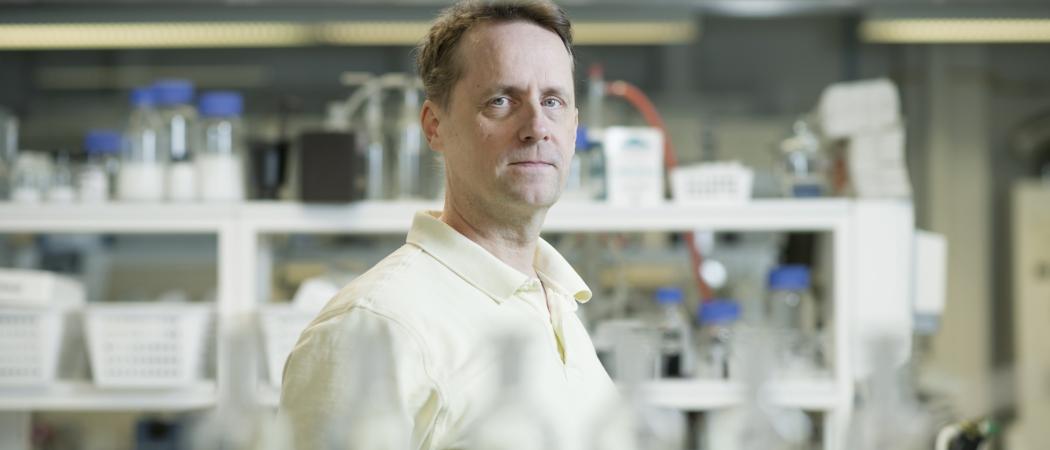Competition teams welcome audiences to hear their innovative solutions at an open seminar in Brussels on 26 September.

Ari Seppälä of Aalto University leads a multidisciplinary team consisting of chemists, energy engineers and experts, and physicists. Photo: Meeri Utti.
The seven finalist teams in the Helsinki Challenge science-based idea competition are about to head to Brussels for a Global Impact Camp. Since January, the competition participants have worked hard to develop their bold ideas for tackling global challenges. In this final stage, teams can discuss and co-create with experts and mentors.
Helsinki Challenge is an effort by ten Finnish universities to strengthen the dialogue between research and the wider society, and to enable new science-based research proposals. The teams have contemplated how to help the world reach the UN Sustainable Development Goals. Their solutions can be either pioneering research, marketable ideas, or unique innovations.
The Helsinki Challenge competition calls for collaboration between scientific boundaries and broad-minded thinking. The competition teams consist of researchers from different universities, across disciplines, and also of representatives from companies and the public sector.
Aalto University in Finland is one of the organising universities and participates in various teams. ‘Universities bear a growing responsibility in tackling humanity’s grand challenges. This compels us to engage in multidisciplinary and multi-organisational collaboration in a novel manner. Helsinki Challenge brings us this future mode of working today’, says Ilkka Niemelä, President of Aalto University.
Aalto University’s Team HeatStock develops material for heat storage
One of the seven finalist teams, HeatStock, is headed by Ari Seppälä, who works as a Senior Scientist at the Aalto University Department of Mechanical Engineering. Team HeatStock wants to develop a new kind of material that stores heat for long periods of time. The heat can be collected in the summertime using solar collectors and then stored for the winter months. “We can make the world cleaner and our use of natural resources smarter. This will also have a positive effect on the climate”, says Ari Seppälä.
The competition was launched in late autumn 2016 with a total of 110 entries in the first phase. Twenty teams passed the first evaluations in early 2017 and qualified for the semi-finals. In May, seven teams were selected for the final phase.
During the competition process, the best teams developed their ideas into solutions at boot camps, meetings, and workshops. They have received valuable mentoring and training in partnerships, funding, pitching and design thinking.
Teams present their ideas at an open event in Brussels
The first impact camp was held in April in Helsinki. The second camp in Brussels will be an intensive co-creation session focusing on the societal impact of research, funding and collaboration with international experts and EU decision-makers.
All finalist teams will present their ideas to the public in an open seminar on 26 September at the Bibliothèque Solvay, Brussels. Keynotes will be given by Anthony Antoine, Deputy Director of the United Nations University, and Jyrki Katainen, VP of the European Commission, followed by a panel discussion on the theme Grand societal challenges & science impact with leading experts in the field.
The winner of the Helsinki Challenge competition will be announced in November. The competition prize is 375 000 euros for the implementation of the solution.
The prize is just one of the competition’s benefits. Even if a team doesn’t win the competition, their idea will likely have a bright future because of the new partnerships formed and competences discovered during the journey.
Registration is open here.





 A unique international forum for public research organisations and companies to connect their external engagement with strategic interests around their R&D system.
A unique international forum for public research organisations and companies to connect their external engagement with strategic interests around their R&D system.